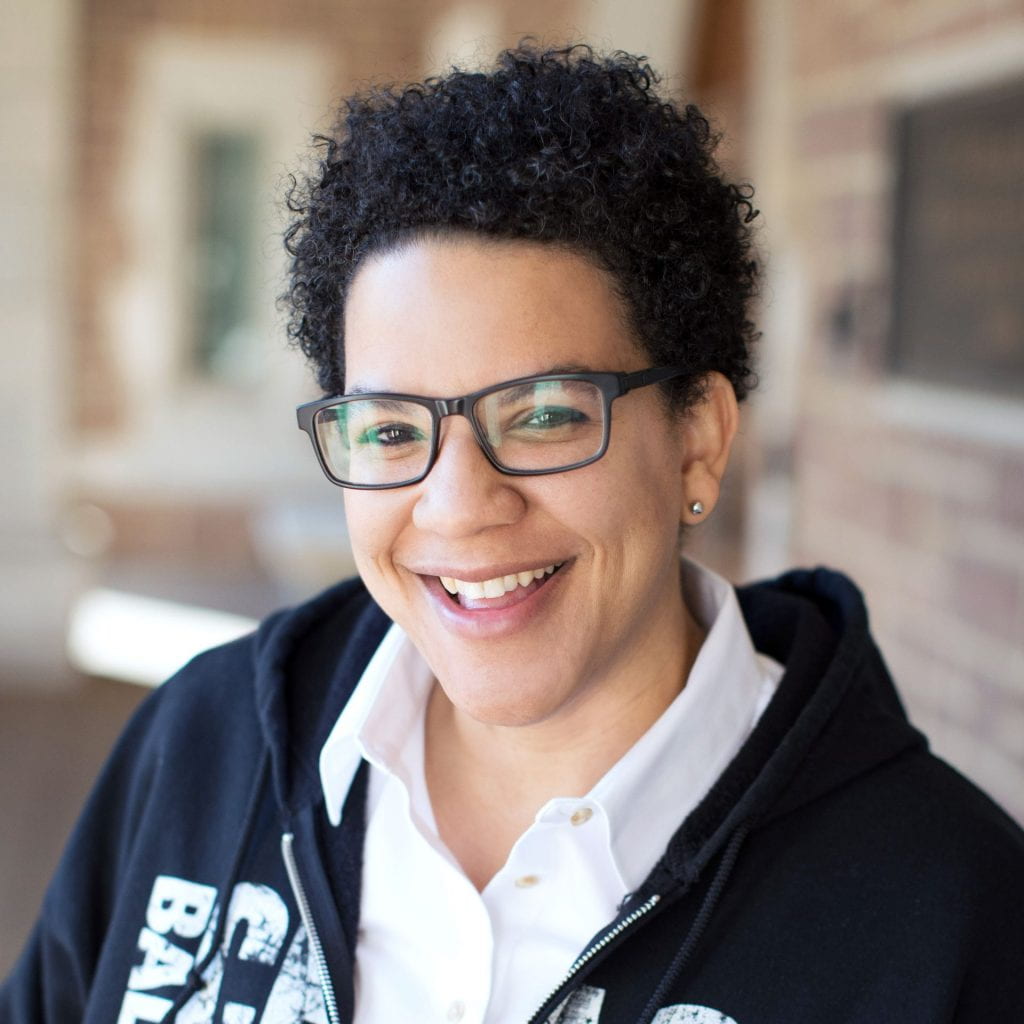
Dr. Laurie Punch is a surgeon and teacher. She is a mother and neighbor. She is an advocate. “All of these things impact my community involvement and how I engage with others,” she shared. “I can’t really separate them.”
Punch moved to St. Louis in early 2016 and works tirelessly as a trauma surgeon at Barnes-Jewish Hospital (BJC) and as associate professor of surgery at the Washington University School of Medicine. Throughout her career as a surgeon, Punch has treated and saved countless lives impacted by gunshots and other acts of violence. In addition to treating wounds, she advocates for patients and their families by taking time to understand their situation and outlining a process for both physical and emotional recovery. Soon after arriving in the area, Punch discovered that the St. Louis community feels a sense of disconnect with and distrust toward the medical community. “I attended listening sessions on the topic of gun violence,” she shared. “People expressed a desire for patient care that goes beyond hospital walls, care for the individual. I started to ask myself, ‘How can we demonstrate authentic care and connection with the broader community?’”
Punch’s commitment to community led her to launch Power4STL, a nonprofit volunteer organization of health professionals focused on reducing the impact of violence in the St. Louis region. Punch worked independently on the project for over a year. Erin Andrade, MD, MPH, and Jane Hayes, a medical student and paramedic, joined the initiative in fall 2017 and “supercharged it” over the next 6 months. The team started with a focus on Stop the Bleed, a national program that trains the public in techniques to stop life-threatening bleeding before professional help can arrive. Punch described their work as translating “the goals and power of the campaign into an impactful resource that brings life-saving training to those who need it the most in our community.” The cost and approach of the broader campaign, she noted, were not accessible to the areas in St. Louis experiencing the highest rates of gun violence, such as the Ville and Wellston.
Punch, who serves as Power4STL’s director, worked with her team to plan and develop curricula before hosting their first course with partner organization Better Family Life. In addition to providing hands-on training in trauma first aid, they provided trauma first aid kits free of cost. “This first class exceeded all expectations,” she recalled. “Participants expressed such radical generosity and satisfaction with the training. By sharing knowledge and resources, we were enabling them to express their power, their ability to save the lives of loved ones and neighbors.”
Power4STL has trained over 6,000 people since March 2018 and has grown from a team of three to over 70 individuals involved in outreach. They teach in St. Louis city and county juvenile detention centers and have ongoing partnerships with community organizations, companies, and schools, including WashU. In 2019, the organization opened a community health education center on Delmar Boulevard, which has allowed them to expand programming on trauma recovery and violence prevention. They have even hosted art and dance events and community dinners.
When asked how her work as a surgeon and president of Power4STL informs her teaching, she said, “I teach with the recognition that healthcare is only a fraction of what makes health.” Punch introduces students to “what happens in people’s lives,” the environmental factors that influence their health and the recovery process that continues after their stay in medical institutions. She also fosters understanding of St. Louis’ particular challenges by bringing community partners into the classroom and training students to participate in outreach events. “Students realize that they can make an impact as early learners, and they get a better picture of what people experience in the community.”
Punch’s care for and ability to build connections between students, colleagues, and community members is evident in her trainings on Delmar, at the building she refers to as “The T.” The T’s motto is “Time is Life,” a powerful reminder that when someone is bleeding, being ready to act can literally mean the difference between life and death. Student volunteers greet attendees with a warm welcome as they enter the space. Popcorn is popping, music is playing, and the room quickly fills with the buzz of conversation. Attendees are diverse in age and come from a range of backgrounds. Within a few minutes, volunteers need to add more chairs. Punch is everywhere in this space, saying hello to newcomers, showing a volunteer how to start the popcorn machine, and dancing along to her playlist selection. The TV isn’t working this evening, so she won’t be able to show presentation slides. “No problem,” she says. “We’ll adjust.” The training begins, and the engagement continues.
In April, the Gephardt Institute recognized Dr. Punch as a 2019 Gerry and Bob Virgil Ethic of Service Award honoree. Founded during Washington University in St. Louis’ Sesquicentennial year, the annual award celebrates a select group of WashU community members who exemplify a character of service and engagement with the St. Louis region.
To learn more, visit ethicofservice.wustl.edu.